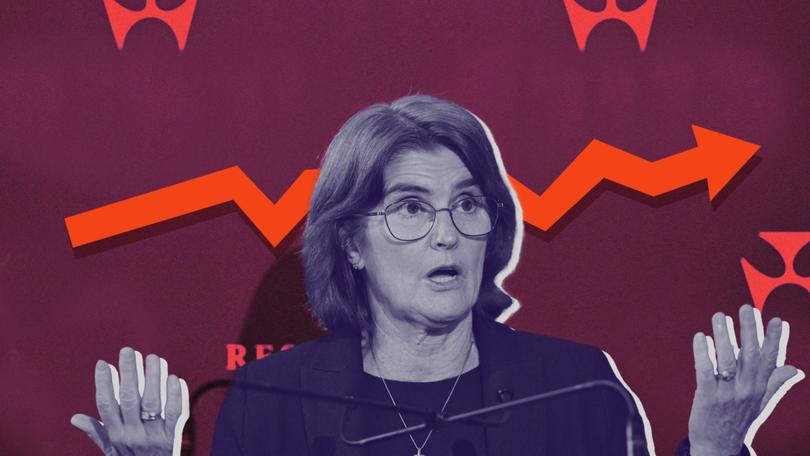EDITORIAL: Economic picture requires broader focus than just rates policy
EDITORIAL: With BBQ season heating up, there will be plenty more talk about what’s going right or wrong with the economy...

Interest rates must come down. No they must go up.
Actually, they should stay just where they are.
The unemployment rate is going up. No wait, it isn’t.
Sign up to The Nightly's newsletters.
Get the first look at the digital newspaper, curated daily stories and breaking headlines delivered to your inbox.
By continuing you agree to our Terms and Privacy Policy.And what about participation rate hey? Crazy!
If this all sounds familiar maybe that’s because these days everyone is an expert, or at least they think they are.
So with BBQ season heating up, there will be plenty more talk about what’s going right or wrong with the economy.
And by extension what that means for interest rates. And what that means for mortgage repayments, house prices and rents.
And playing into the debate will be the politicians of all sides. For they are keen observers of the public mood on these issues. And without being too cynical, no doubt frame their messages accordingly.
Public awareness of and interest in the pronouncements of the people who actually have their hands on the monetary policy levers — the good folk at the Reserve Bank — reaches fever pitch ahead of the boards regular meetings.
And when rates go up or down the actions of the bank get dissected a million different ways.
And when rates don’t shift — like today — what bank Governor Michele Bullock says is dissected a million different ways.
In a move that had been expected, the RBA’s board today held the cash rate at 4.35 per cent.
The bank has now left the cash rate unchanged for nine straight meetings.
In a statement on Tuesday, the RBA’s board said fighting inflation was still top priority and remained concerned that prices were rising too quickly.
“The most recent forecasts . . . do not see inflation returning sustainably to the midpoint of the target until 2026,” the RBA’s statement said.
As ever, the public focus on interest rates versus inflation remains laser-like.
But there are plenty of other factors at play.
Judo Bank chief economic adviser Warren Hogan says the economy has absorbed the increases in rates since the pandemic.
The underlying economic dynamic had changed from excess labour supply to labour scarcity — in other words there was a jobs boom.
Rates were not high by historical standards, but Hogan says monetary policy is getting more and more “politicised” around the view that a rate cut is good for the Government and rate rise — or even leaving rates unchanged — was bad for the Government.
Clearly the economic picture is more complex than just what happens to interest rates.
Writing in the Australian Financial review, Hogan said “the primary challenge now is skills matching and shifting precious labour resources into the most productive and important roles, which will only intensify over the next decade.”
And then there is the impact of technology ahead of us.
“Supercomputing and artificial intelligence will change everything,” Hogan wrote.
There is plenty more to talk about over the BBQ this summer.
